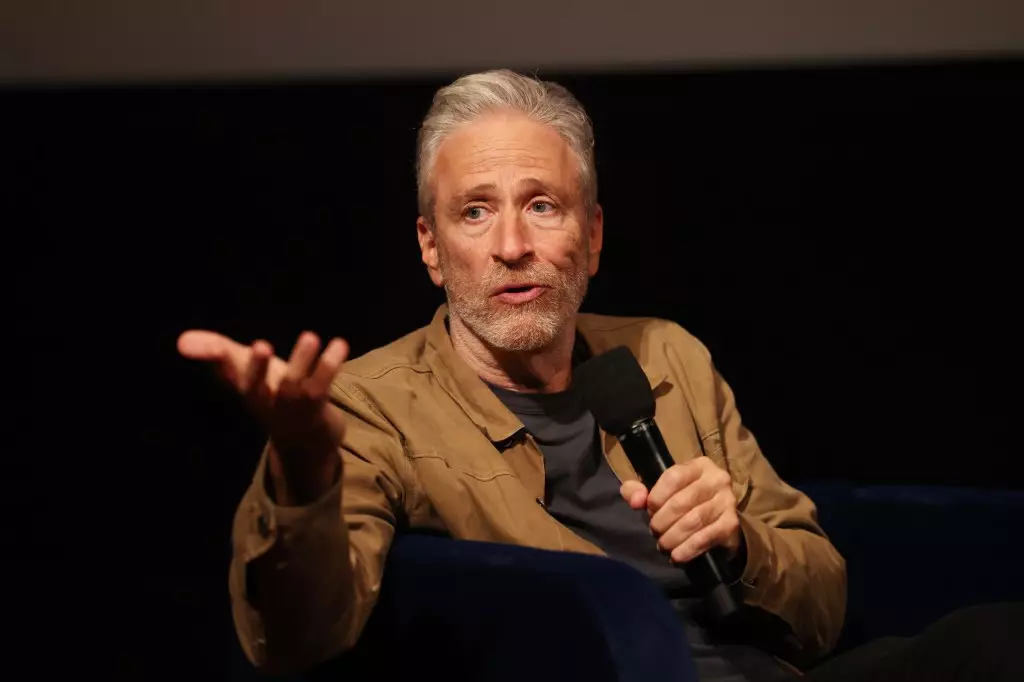In an era dominated by tech giants like Apple, Netflix, and Amazon, the entertainment industry finds itself at a critical juncture. Jon Stewart, the former host of The Daily Show, recently delivered a passionate defense of writers during an event intended to promote his return to television. He articulated a growing concern: as technology companies increasingly infiltrate content creation, the opportunities for writers dwindle, fundamentally altering the fabric of the industry. The value associated with creative storytelling is under threat, as corporate structures often prioritize profitability over artistic integrity. This shift doesn’t simply represent a loss of employment; it signifies a loss of the artistry that has historically defined the entertainment landscape.
The Diminution of Artistic Craftsmanship
Stewart’s remarks resonated deeply, emphasizing the importance of viewing writing as a craft, one that benefits from collaborative effort and creative synergy. He lamented the trend where tech companies, upon acquiring creative properties, significantly reduce writers’ rooms, thereby erasing the essential human element that fosters rich and innovative storytelling. This isn’t just about job cuts; it affects how stories are conceived and developed. The process of writing requires input from diverse voices, a factor that tech-driven operations often overlook in favor of streamlined efficiency. This danger looms large; diminishing creative teams reduces the potential for groundbreaking ideas and authentic narratives.
A Reflection on Human Connection
However, amidst these technological shifts, Stewart maintained a thread of optimism regarding the human connection inherent in art. He observed a palpable need among audiences for genuine, personable interactions during live shows, highlighting a revival of community spirit. This observation speaks volumes about the current cultural landscape, where feelings of isolation and uncertainty are widespread. Entertainment has the power to bridge gaps between individuals, creating shared experiences that online streaming cannot replicate. Stewart’s insights serve as a reminder that while technology can serve as a tool, it can never replace the human elements that have historically enriched the arts.
Celebrating the Craft through Resilience
In his return to television, Stewart praised the talented team he left behind in 2015, reflecting their growth and adaptability in an ever-changing industry. The admiration for these individuals underscores the notion that even amidst corporate pressures, talent flourishes. This resilience is critical; it is a testament to the belief that authentic storytelling can prevail, despite challenges. Stewart’s recognition of his colleagues showcases a collective commitment to elevating the craft, an affirmation that true artistry endures.
In summation, as tech companies continue their march into entertainment, the industry must remain vigilant. The voices of writers should not only be preserved but celebrated, for they are the lifeblood of creativity. It’s essential to enforce the notion that art is a collaborative venture, steeped in history, humanity, and a deep-seated respect for the craft itself. By championing artistic integrity against the backdrop of technological influence, we can ensure that the future of entertainment remains vibrant and meaningful.


Leave a Reply